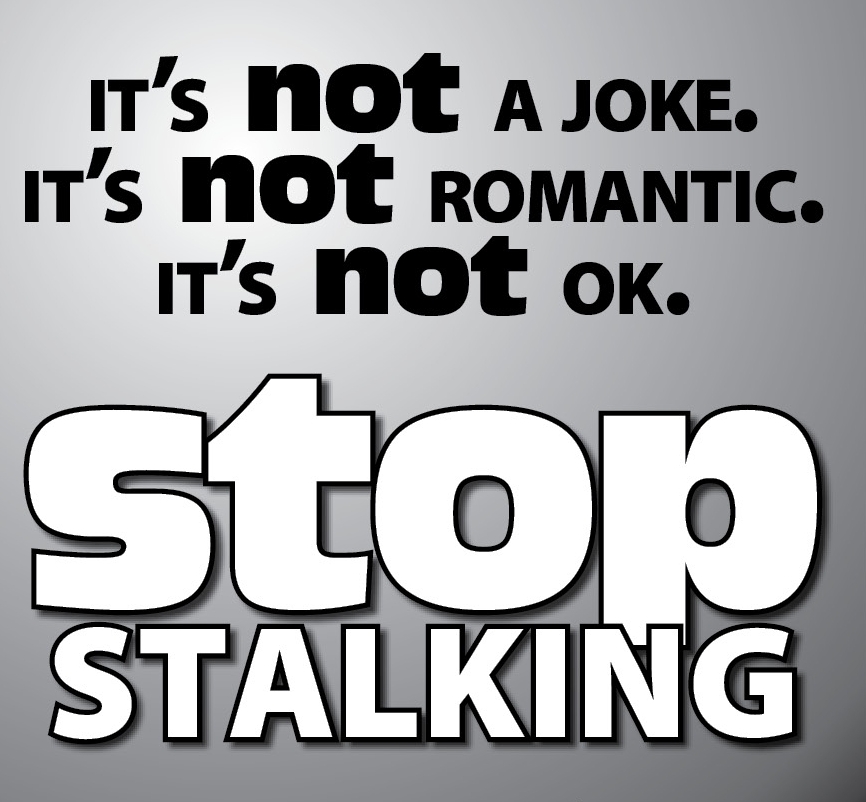Stalking and Harassment
Stalking is :
a crime!
not a joke!
not romantic!
not ok!
If you are feeling vulnerable, please download the free HollieGuard app which offers protection by enabling alerts to your chosen contacts, and can also be used for meetings or journeys. The evidence is admissible in court and provides added protection while away from home. For more details, please see https://holliegazzard.org/hollieguard/
What is it?
Stalking causes the victim to fear distress, violence or to suffer serious alarm. To be guilty of the offence of stalking the offender must, on at least two occasions, indulge in conduct that causes the victim harassment, alarm or distress. The 2012 Act recognises stalking as harassment that may include persistent and repeated contact or attempts to contact a victim. It provides a list of examples;
contacting, or attempting to contact, a person by any means
publishing any statement or other material relating or purporting to relate to a person, or purporting to originate from a person
monitoring the use by a person of the internet, email or any other form of electronic communication
loitering in any place (whether public or private)
interfering with a person property
watching or spying on a person
unwanted gifts
rearranging items
always 'bumping into them'
calling Social Services with fictitious claims
The 2012 Act clarifies references to harassment causing fear in the 1997 Act. It uses the phrase ‘substantial adverse effect on the usual day-to-day activities’. Examples might include victims fitting more security devices, changing routes to work or arranging for others to pick up children from school to avoid the attentions of a stalker. As a result the victim has less freedom.
Stalking is indeed a crime under UK law and recognised as a form of harassment under the Protection from Harassment Act 1997 and The Stalking Protection Act 2019, which allows for Stalking Protection Orders (SPOs).
What can you do:
Take action, call the police and tell them what is happening; you will be taken seriously
Do not confront your stalker or respond
Keep a record of times and places, messages, call logs, emails
Download the Hollie Guard app https://holliegazzard.org/hollieguard/ This will alert your chosen contacts of your whereabouts by GPS and record sound and video
Tell friends, family and your workplace what is happening
While you are not to blame for the actions of a stalker, there are steps you can take to enhance your personal safety and reduce risk. For example, varying your routines, such as leaving at different times or taking different routes, can help make it harder for the stalker to predict your movements. These measures are about empowering you to feel safer, but the responsibility for stopping the stalking lies with the perpetrator, and we would encourage you to report their behaviour to the police.
Call Coventry Haven Women's Aid for help and support - T: 08001114998 or 02476444077
The National Stalking helpline: www.stalkinghelpline.org
The Suzy Lamplugh Trust: www.suzylamplugh.org
Hollie Gazzard Trust line: www.https://holliegazzard.org/
Paladin National Stalking Advocacy Service: https://paladinservice.co.uk/
Statistics
94% of 358 female murders included stalking behaviour
stalking behaviour is frequently cited as a precursor to violence against women
1 in 2 'ex or known' stalkers will act on their threats (ex partner, friend, someone you've met once, dated once etc)
1 in 10 'stranger' stalkers, will act on their threats
80% of victims are female
71% of perpetrators are male

